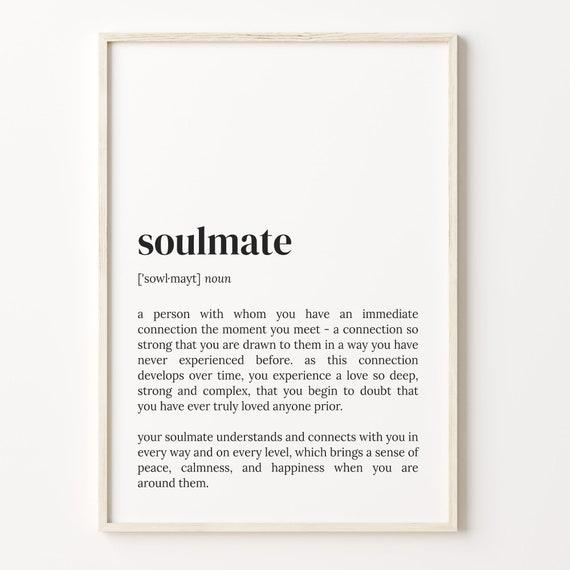In the crowded landscape of romantic narratives, the assumption that your soulmate and your best friend are one and the same often goes unchallenged. But what if this widely held belief is a misconception? Actor and writer Brett Goldstein explores this provocative question in his latest work, All of You. With a blend of sharp wit and emotional depth, Goldstein delves into the complexities of love and friendship, inviting audiences to reconsider how we define our deepest connections. This article examines the themes at the heart of All of You and what Goldstein’s inquiry reveals about modern relationships.
Exploring the Complexities of Modern Relationships through All of You
All of You dives deep into the tangled web of modern relationships, challenging the almost sacrosanct belief that your soulmate must be your best friend. Brett Goldstein masterfully dissects the nuances of emotional connections that don’t always align with traditional expectations, revealing how love can emerge in unexpected forms.The narrative explores themes like vulnerability and intimacy, showcasing characters who navigate the uncertainties of their heart’s desires while grappling with societal norms, misunderstandings, and personal growth. This exploration isn’t just about romance—it’s about the complexities that define human connection in an age where friendship, love, and partnership blur.
- Redefines soulmate dynamics: moves beyond simplistic idealization
- Highlights emotional authenticity: characters express raw and imperfect feelings
- Reflects contemporary dating culture: with its mix of technology, social media, and evolving social norms
| Aspect | Traditional View | Perspective in All of You |
|---|---|---|
| Best Friend & Soulmate | Often the same person | Could be separate, sometimes conflicting |
| Love’s Certainty | Clear and immediate | Fraught with ambiguity and doubt |
| Interaction | Open and honest by default | Complicated, layered, sometimes deceptive |
Brett Goldstein Challenges Conventional Notions of Soulmates and Friendship
In All of You, Brett Goldstein disrupts the age-old assumption that our best friend is, by default, our soulmate. Through a mix of heartfelt storytelling and sharp dialog, he navigates the complexities of human connection, suggesting that the path to true intimacy might not always lie in the friendships we cherish the most. Goldstein’s exploration peels back layers of expectation, pushing audiences to rethink the boundaries between platonic and romantic relationships. Rather than conforming to the conventional narrative, the film paints a more nuanced picture, where love and friendship can intertwine—or diverge—in unexpected ways.
Highlighting this fresh perspective, Goldstein presents a series of compelling situations where characters confront:
- The limits of friendship as a foundation for love
- Societal pressures dictating who we should love
- The evolving nature of soulmates, which may not always be one person
These themes challenge viewers to critically contemplate their own beliefs about connection. The film’s cultural dialogue is summarized in the following table, illustrating common expectations versus Goldstein’s challenge to these ideas:
| Traditional Belief | Goldstein’s Challenge |
|---|---|
| Your best friend = your soulmate | Soulmates can emerge outside of existing friendships |
| Friendship is always stable | Friendship dynamics can evolve unpredictably |
| Love is bound by societal expectations | Love transcends conventional labels and timing |
The Emotional Impact of Separating Romance from Deep Friendship
In Brett Goldstein’s “All of You,” the nuanced separation of romantic love from deep friendship surfaces as a profound emotional challenge. Characters navigate the complex terrain where intimacy and trust bloom in friendships but do not necessarily translate into romantic chemistry. This distinction evokes a bittersweet realization—that the heart can hold multiple kinds of love, each vital yet fundamentally different. The emotional fallout includes a spectrum of feelings: relief in honesty, heartbreak in unmet expectations, and confusion over where to draw the line between affection and desire.
Audiences are prompted to reconsider societal narratives that often conflate “soulmate” with “best friend.” This recalibration encourages a healthier understanding of relationships through three key insights:
- Emotional clarity: Defining boundaries without guilt allows people to appreciate friendships for their own merits.
- Reduced pressure: Separating friendship from romance lightens the emotional burden and unrealistic expectations placed on partners.
- Personal growth: Learning to hold multiple, distinct emotional connections enriches our social and romantic lives.
How to Navigate Changing Relationship Dynamics with Honesty and Compassion
In the evolving landscape of intimate connections, honesty emerges as the foundation that supports the delicate architecture of trust. Navigating changes in relationship dynamics requires more than just openness; it demands a commitment to openness about feelings, expectations, and fears. Brett Goldstein’s poignant exploration in All of You highlights how couples can embrace vulnerability without fear of judgment, fostering an habitat where difficult conversations lead to deeper understanding rather than division. Key to this process is active listening—partnering honesty with compassionate ear, ensuring each voice is heard and valued equally.
- Recognise evolving needs: Understand that growth may shift priorities or desires.
- Practice patience: Allow space for change without rushing to conclusions.
- Embrace empathy: Step into your partner’s perspective to validate their experience.
| Action | Outcome |
|---|---|
| Open dialogue about feelings | Builds mutual trust |
| Acknowledging different emotional rhythms | Fosters patience and understanding |
| Valuing vulnerability as strength | Encourages deeper intimacy |
Compassion acts as the heartbeat of a relationship that’s adapting to new rhythms, allowing partners to meet each other halfway with kindness rather than criticism. When people shift roles,identities,or even their emotional closeness,the response rooted in empathy can transform potential conflict into a shared journey. Goldstein’s narrative urges couples to redefine what connection looks like beyond traditional norms, underscoring that the “best friend” aspect, while valuable, isn’t the sole measure of soulmate status. Embracing this nuanced view encourages relationships to thrive on authenticity, support, and above all, grace.
The Conclusion
In challenging the long-held notion that your soulmate must also be your best friend, Brett Goldstein’s All of You opens up a fresh conversation about love’s unpredictable nature. The series invites viewers to reconsider the boundaries of intimacy and connection, proving that the heart’s true match may not always be found in familiar territory. As audiences continue to explore these complex emotional landscapes on screen, one thing remains clear: love defies easy definitions, and sometimes, the most profound relationships come from unexpected places.










